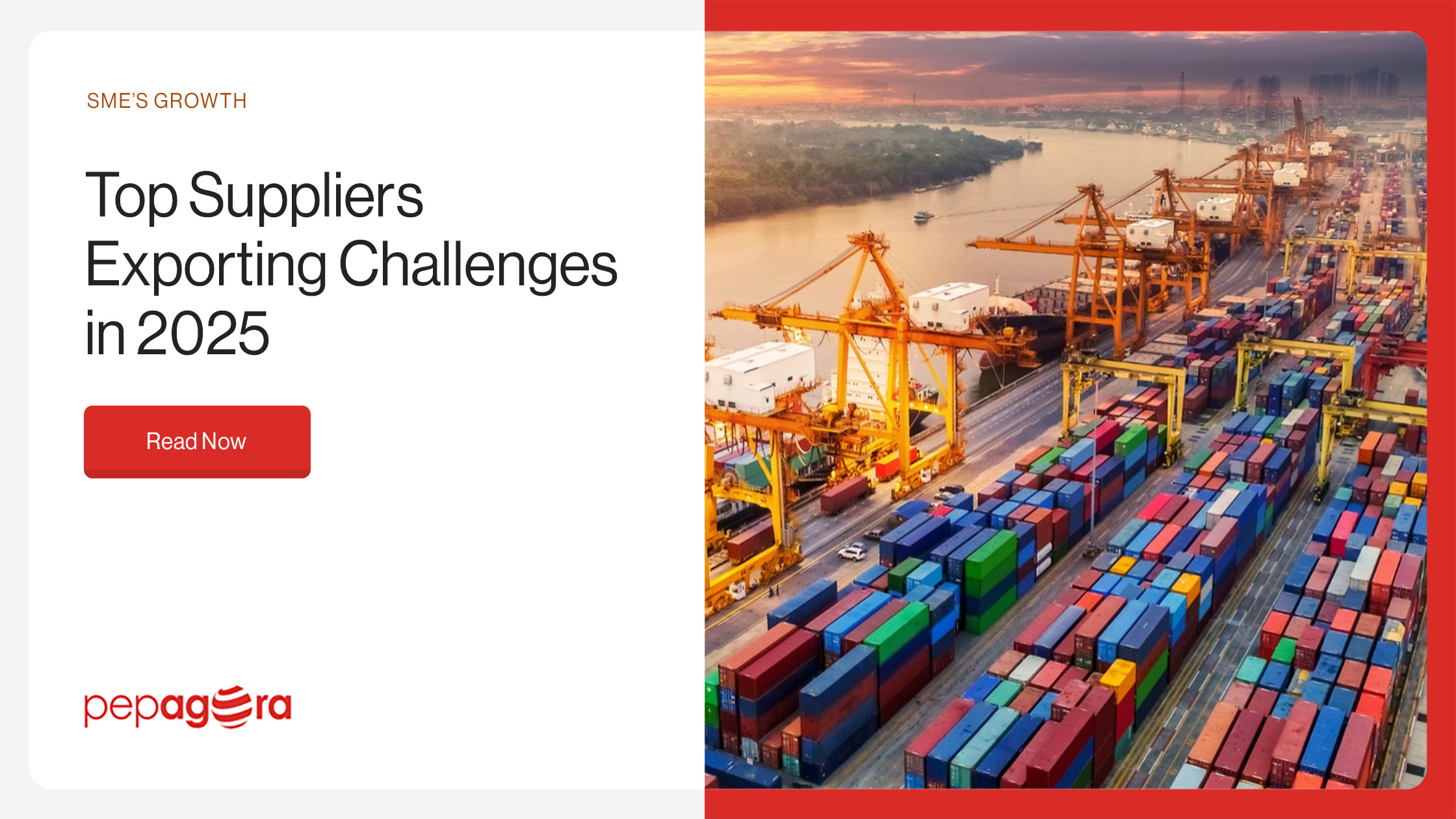
Top Suppliers Exporting Challenges in 2025
The Export Challenges in 2025
As global trade continues to evolve, suppliers face increasing challenges in exporting goods internationally.
In 2025, exporting is more complex than ever before, with new regulations, fluctuating demand, and shifting market dynamics. For small and medium-sized enterprises (SMEs), these challenges can seem overwhelming.
According to a recent report, over 50% of SMEs cite logistics and international regulations as their primary barriers to successful exporting.
How can suppliers navigate these hurdles effectively? What strategies can be employed to ensure smooth international trade? This article delves into the top supplier challenges in exporting in 2025 and offers actionable solutions for overcoming them.
1. Complex Regulations and Compliance
One of the biggest hurdles for suppliers in 2025 is dealing with the complexity of international regulations. Every country has its own set of rules regarding tariffs, taxes, product standards, and documentation.
For SMEs looking to expand into global markets, understanding and complying with these regulations can be a daunting task.
Solution: Leverage B2B Marketplaces for Compliance Support
B2B marketplaces, such as Pepagora, provide a platform for suppliers to access detailed market insights and guidelines for various regions. By utilizing these platforms, suppliers can ensure they are meeting local regulatory requirements and streamline their compliance processes.
Many B2B platforms offer features that assist with documentation, customs clearance, and product certifications, reducing the burden on exporters.
2. Supply Chain Disruptions
The global supply chain has experienced significant disruptions in recent years, and 2025 is no exception. Factors such as geopolitical tensions, natural disasters, and pandemics can cause delays, making it harder for suppliers to fulfill international orders on time.
Solution: Diversify Supply Chain Networks
To mitigate the risk of supply chain disruptions, suppliers should diversify their networks. Instead of relying on a single supplier or manufacturer, businesses can build relationships with multiple suppliers in different regions. This can help maintain a steady flow of goods, even when one part of the supply chain is disrupted.
In addition, B2B platforms provide suppliers with the ability to connect with multiple suppliers and distributors, offering greater flexibility in sourcing products. By using these platforms, suppliers can quickly find alternative partners and ensure their export operations continue smoothly.
3. Currency Fluctuations and Payment Risks
Currency fluctuations are a constant challenge for suppliers engaged in international trade. The volatility of exchange rates can impact the profitability of an export deal, making it difficult for suppliers to predict their margins accurately. Additionally, international payments can pose risks, such as delayed transactions or payment defaults.
Solution: Utilize Secure Payment Platforms
One way suppliers can mitigate currency and payment risks is by using secure payment platforms that offer favorable exchange rates and protection against fraud. Many B2B platforms integrate payment solutions that provide suppliers with a safe and efficient way to handle cross-border transactions.
Additionally, Pepagora offers tools that allow suppliers to track payments and manage their finances with greater transparency. By using these tools, suppliers can ensure they are getting paid promptly and reduce the risk of financial loss.
4. Competition from Global Players
In the global marketplace, suppliers are not only competing with local businesses but also with established global players who have more resources and infrastructure. This increased competition can make it difficult for suppliers to maintain a competitive edge, especially in price-sensitive markets.
Solution: Focus on Niche Markets and Value-Added Services
To stand out from the competition, suppliers should focus on niche markets where they can offer unique products or services. By identifying gaps in the market and tailoring offerings to meet specific customer needs, suppliers can differentiate themselves from larger competitors.
Moreover, B2B platforms like Pepagora allow suppliers to showcase their unique products and services, making it easier to attract buyers who are looking for specialized goods. These platforms also offer tools for suppliers to create personalized offers and connect with buyers directly, helping them secure more deals.
5. Logistics and Shipping Challenges
Shipping and logistics continue to be major challenges for suppliers engaged in international trade. Delays, rising shipping costs, and limited availability of transportation options can all impact a supplier’s ability to fulfill orders on time.
Solution: Partner with Reliable Shipping Providers
To address logistics challenges, suppliers should partner with reliable shipping providers that offer competitive rates and timely deliveries. Many B2B platforms have established relationships with trusted logistics companies, enabling suppliers to take advantage of discounted shipping rates and more efficient delivery options.
6. Language and Cultural Barriers
Cultural differences and language barriers can make communication difficult between suppliers and buyers from different countries. Misunderstandings can lead to delays, lost orders, and damaged relationships.
Solution: Use Translation and Communication Tools
To overcome language barriers, suppliers should invest in translation tools and communication platforms that facilitate smooth interactions with international buyers. Many B2B platforms offer built-in translation services, allowing suppliers to communicate effectively with buyers from different regions.
By using these tools, suppliers can ensure that they are providing clear and accurate information to their customers, reducing the risk of misunderstandings.
Navigating Exporting Challenges in 2025
Exporting in 2025 presents numerous challenges for suppliers, from navigating complex regulations to dealing with logistics and currency fluctuations.
However, by leveraging the right tools and strategies, suppliers can overcome these obstacles and thrive in the global marketplace.
B2B marketplaces like Pepagora offer valuable resources to help suppliers manage these challenges effectively. From finding reliable suppliers and distributors to optimizing payment processes and ensuring compliance, Pepagora provides the tools that suppliers need to succeed in the international market.
By registering for “free registration” and utilizing the platform’s features, suppliers can gain access to a global network of buyers and partners, ensuring their continued success in 2025 and beyond.

